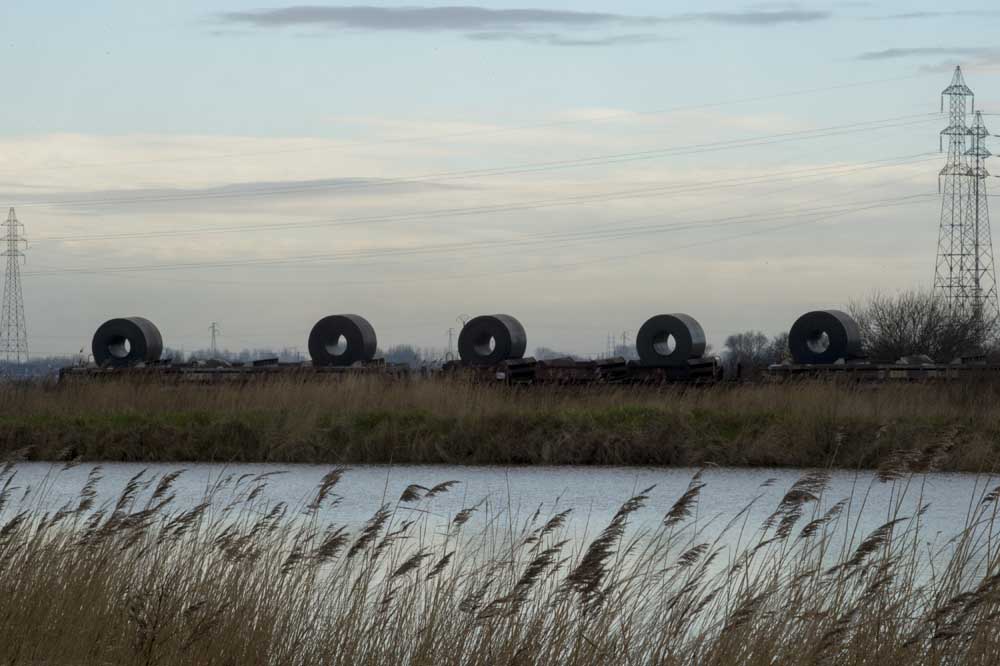Steel giant ArcelorMittal says Trump tariffs are raising profits
Published 12:00 am Friday, August 3, 2018

- Rolls of steel at the ArcelorMittal steelworks in Dunkirk, France in 2014. The CEO of the world’s biggest steelmaker said the tariffs and global demand have delivered the company’s best results since 2011.(Andrew Testa/The New York Times file)
LONDON — Lakshmi N. Mittal, the chairman and chief executive of ArcelorMittal, the world’s biggest steelmaker, is the rare business leader who applauds President Donald Trump’s protectionist approach to trade.
For Mittal, the White House’s tariffs on steel imported into the United States have driven up prices, which, along with strong global demand, have delivered his company’s best results since 2011.
Wednesday, ArcelorMittal said profit rose to $1.9 billion in the second quarter, a 41 percent increase from the same period a year earlier, on sales of $20 billion.
The remarks, and the earnings, stand in stark contrast to fears voiced by companies and analysts in the United States and elsewhere over Trump’s protectionist push.
The White House has imposed steel and aluminum tariffs on a wide range of countries, and, while it has pulled back in recent weeks on the threat of even more aggressive levies on some allies, several businesses have cited the uncertainty over trade as hurting business.
“The industry has quite changed,” Mittal said. “Trade actions in various countries have really helped in structurally changing the landscape of the steel industry.”
Mittal built ArcelorMittal into the world’s only truly global steelmaker through a series of deals in the 1990s and 2000s.
But in recent years the company’s profitability has been sapped by a combination of weak global demand and sharply increased supply from China, which now accounts for about half the world’s steelmaking capacity.
Now, protectionist measures in the United States and elsewhere, combined with strong global demand, are paying off for ArcelorMittal and other steel producers.
Sharply higher prices for its products were a key reason for the strong performance, the company said.
Prices surged as customers around the world scrambled to secure supplies as the impact of the 25 percent tariffs that Trump imposed on steel this year rolled through the market.
The average price ArcelorMittal received for its steel in North America, for example, was up 12 percent annually to $853 a ton, it said.
Europe, too, has become a protected zone as steelmakers have persuaded authorities in the region to apply so-called “safeguard” protections — a combination of quotas and tariffs — to ensure that cut-price metal once destined for the United States does not wind up in, say, Germany.
European prices rose almost 15 percent, ArcelorMittal reported.
The tariffs were a “net positive” for the company, its chief financial officer, Aditya Mittal, said on a conference call Wednesday.
“ArcelorMittal is enjoying a dream combination of strong demand and robust prices,” Seth Rosenfeld, an analyst at Jefferies, an investment bank, said in an interview.
The United States, in particular, is now a “utopia” for steelmakers, with imports from all major steelmaking countries except Australia now subject to either tariffs or quotas, Rosenfeld wrote in a recent note to clients.
Analysts said those good times were likely to continue for some time.
World demand appears to be strong, and steelmakers may achieve further price gains when the contracts under which they supply steel to major customers, like automakers, come up for negotiation.
About 40 percent of ArcelorMittal’s steel in the United States is sold under such contracts.
Steel is a notoriously cyclical industry, though. Rosenfeld noted that U.S. steelmakers were already adding new capacity and restarting closed facilities, like a plant in Granite City, Illinois, that is being revived by U.S. Steel, to the delight of Trump.
Those new supplies may eventually bring down prices, while the possibility remains that Trump modifies, or removes, the tariffs at some point.
Mittal argued that the tariffs were having a measurable impact in reshaping the global steel industry.
In the last two years, he noted, China had closed a substantial number of its steelmaking facilities, and protective measures adopted by the United States and Europe would “continue to put pressure on China” to cut even more.
The executive said he opposed a trade war, but added that he supported “all actions to address unfair trade practices.”
He has not allowed his enthusiasm to go so far as to announce new investments in the United States, though.
Mittal noted that new plants required years to pay off, and so the decisions to build them should not be made on the basis of short-term shifts, but rather the outlook over five to 10 years.







